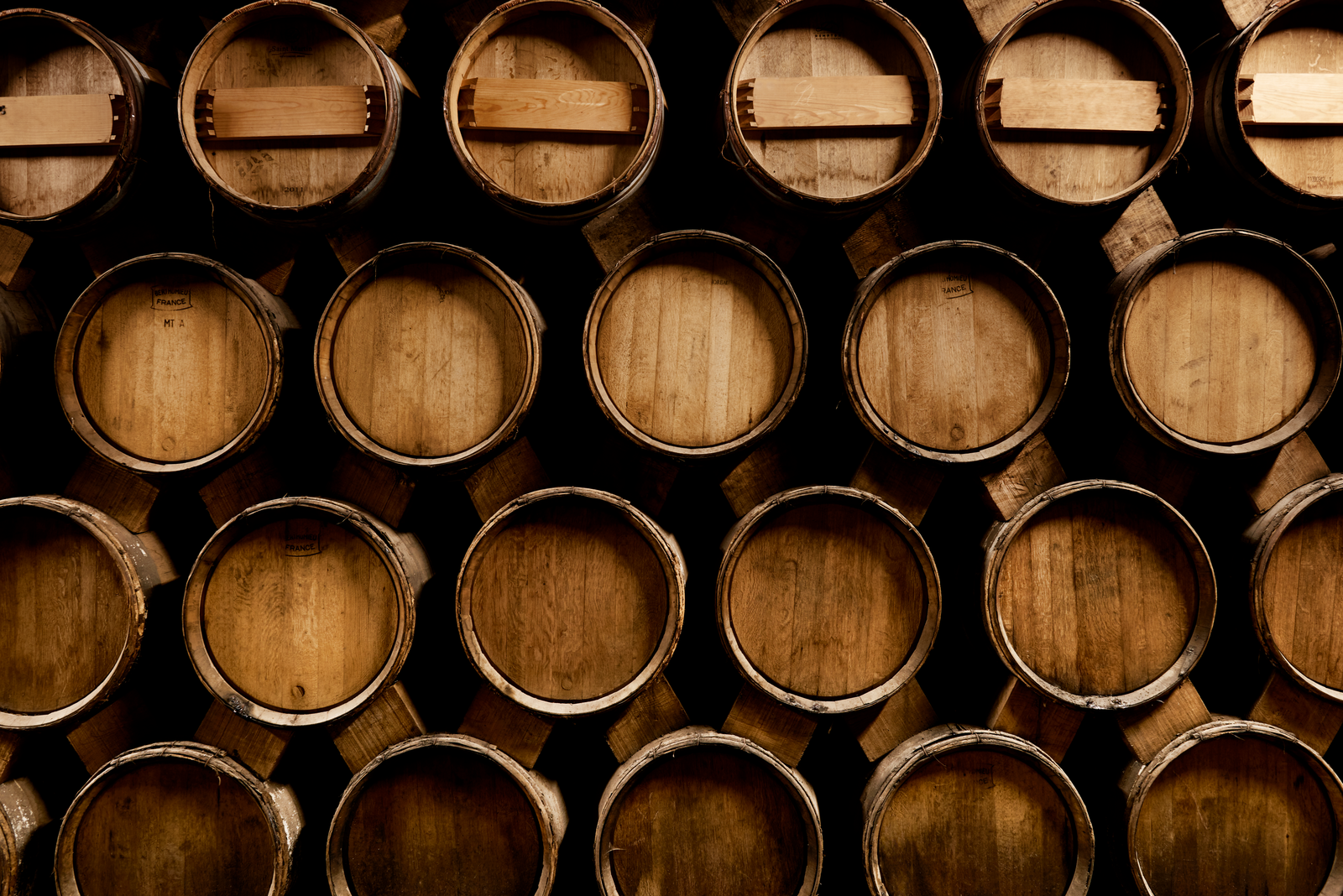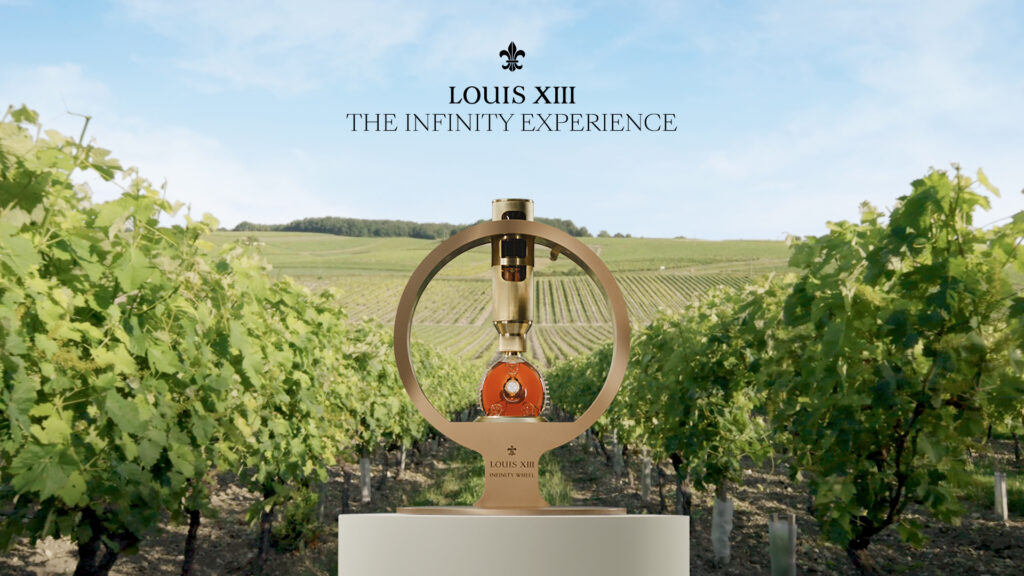Giving a new dimension to our climate strategy with the "A Planet of Exception" project
Have our reduction targets validated by the SBTi (Science Based Targets Initiative): this means a 42% reduction in emissions linked to our production sites (scope 1 & 2) and a 25% reduction for our main scope 3 levers (packaging purchases and transport) by 2030/2031. For our emissions specifically linked to soil cultivation (FLAG target), we are aiming for a 30% reduction.
These targets correspond to a 50% reduction in our carbon emissions per bottle by 2030.
By 2050, we are aiming for “Net Zero Carbon”, i.e. an absolute reduction of 90% in the Group’s emissions.
• Defining our greenhouse gas reduction trajectory through the Science Based Target initiative to achieve Net Zero by 2050 (target validated by the SBTi).
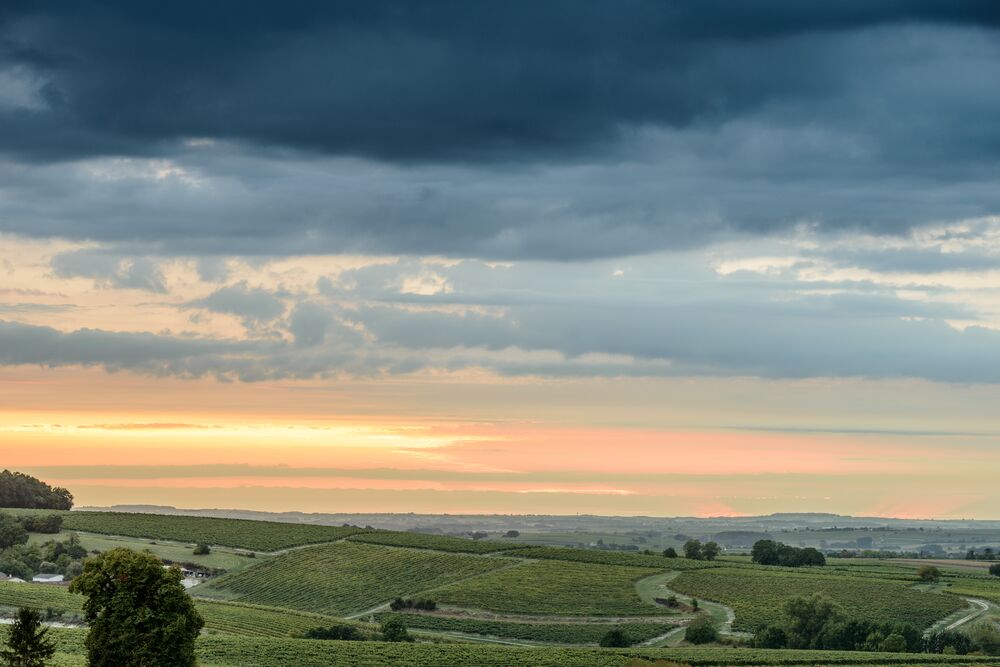
Converting our sites to renewable energy
We are gradually switching all our production sites to renewable energy (38% renewable energy used to date). Of the 8 production sites, 5 use renewable energy (distillation energy and electricity).
• 100% renewable energy for our production sites by 2030.
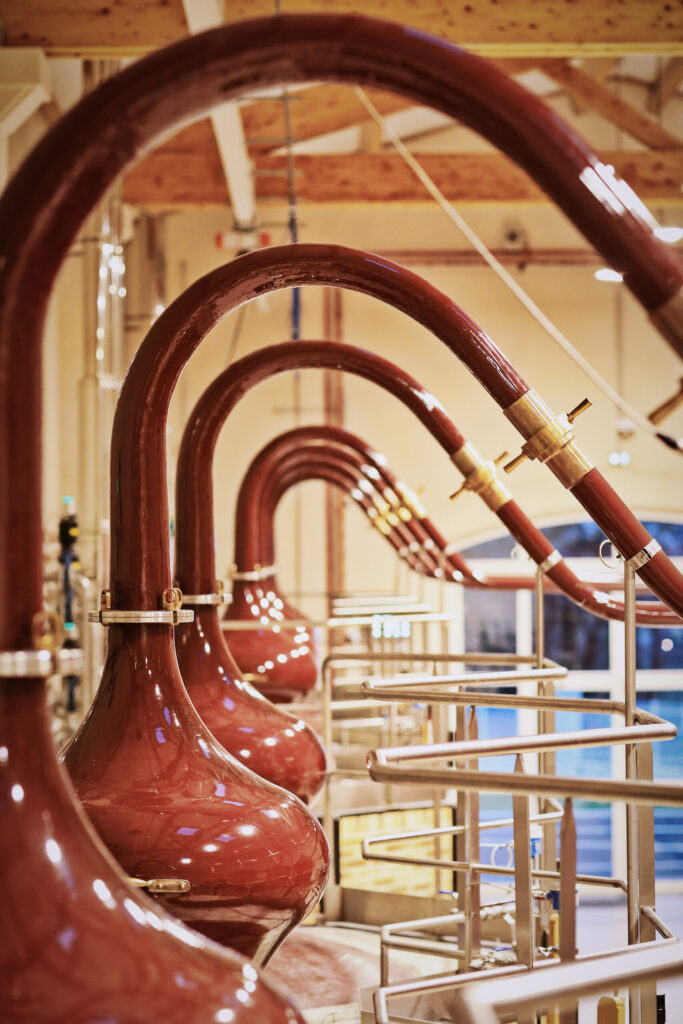
Reducing our carbon footprint per bottle
Packaging is a major lever for reducing the Group’s environmental footprint. Eco-design is the subject of a charter, measurement tools and detailed objectives, to guide teams from the design of products, their packaging and promotional items through to the end of their life cycle.
• 100% of our bottles will be eco-designed by 2025
• 100% of our bottles will be recyclable by 2025
• 85% of our bottles will be sold without secondary packaging by 2025
• -25% of CO2 emissions linked to the packaging by 2030
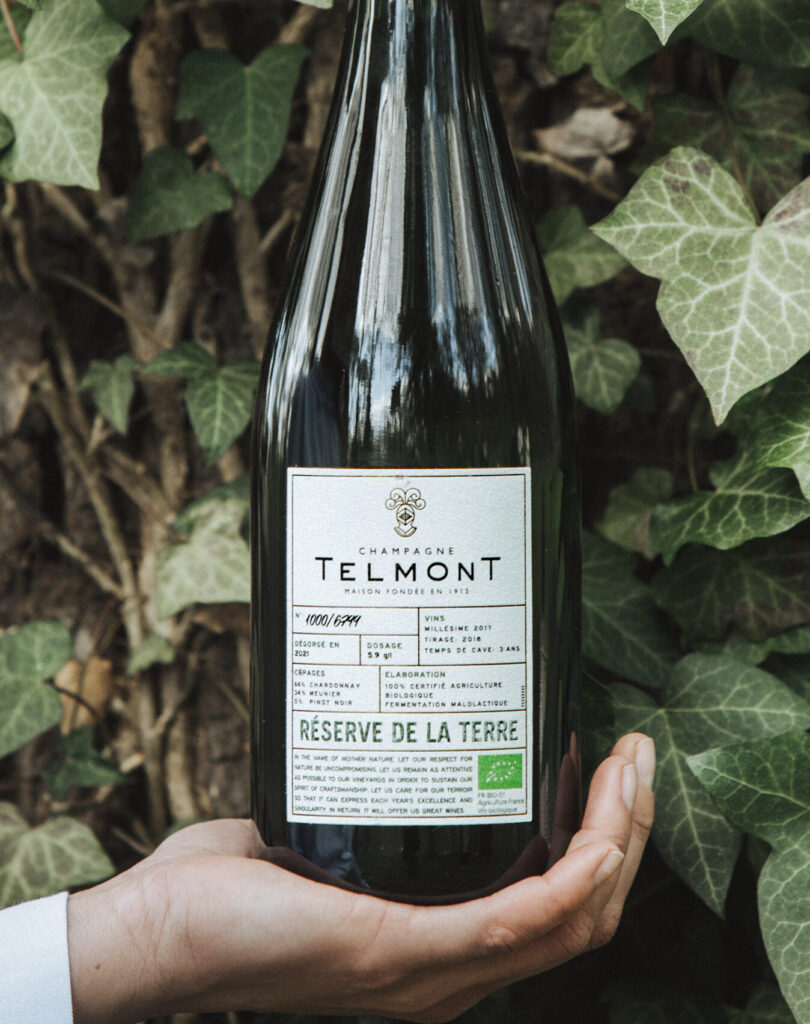
We are optimising our transport and helping to decarbonise the industry
Efforts to optimise upstream and downstream transport should contribute fully to the Group’s objective of reducing its carbon footprint by 50% per bottle by 2030.
The levers identified and being implemented by the Supply Chain team are as follows:
– encouraging “zero air travel” for goods;
– optimising flows to favour low-carbon options (sea, rail and green road transport);
– optimising container fill rates, gradually replacing wooden pallets with slipsheets;
– helping to finance the low-carbon transport of the future.
• -25% of CO2 emissions linked to transportation by 2030.
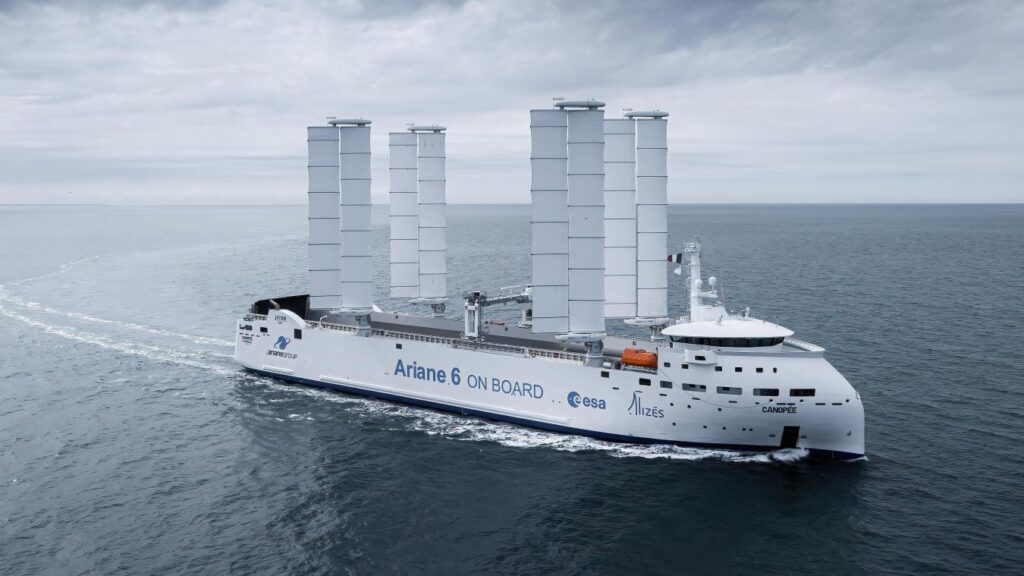
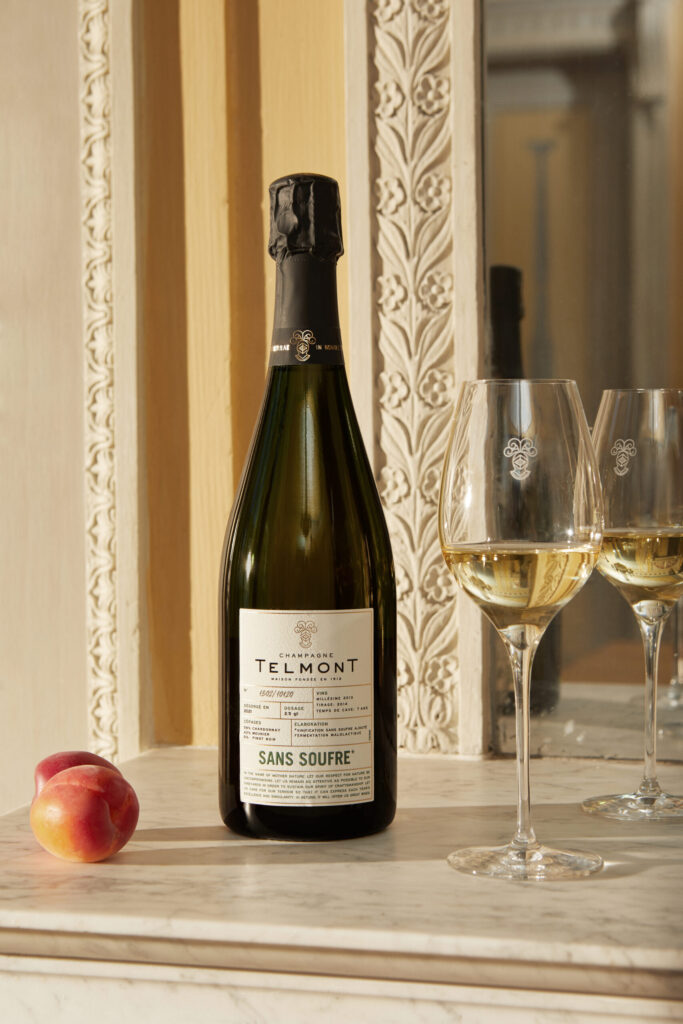
A bold commitment to eliminating secondary packaging from 2020 onwards
As part of our responsibility policy, we are taking action based on the principles of circularity, i.e. Reduction, Recycling and Reuse (according to the 3Rs principle).
So, to help reduce the quantity of materials used in the design of our packaging, we are committed to eliminating secondary packaging: Gift Boxes.
To date, 79% of the Group’s bottles now come without secondary packaging, compared with 74% in 2020/2021 and 21% in 2019/2020.
This initiative is supported by all the Group’s Houses, with Telmont as the figurehead, since its entire range is sold without secondary packaging.
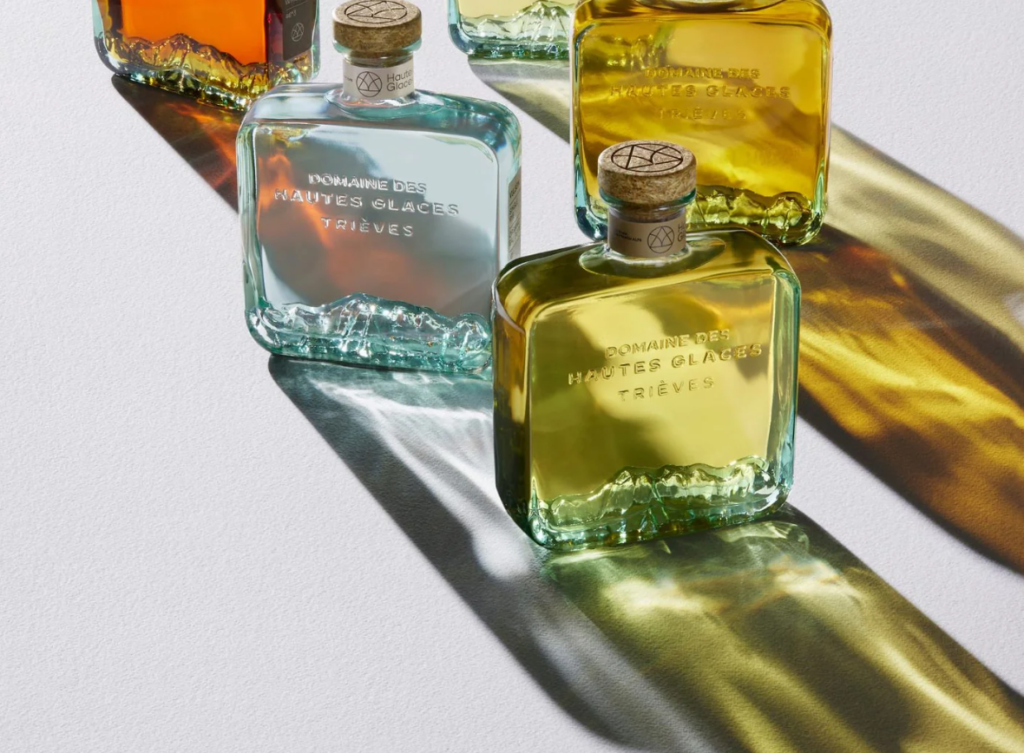
The Environmental Performance Index, a tool for measuring eco-design
Since 2018, our Group has been measuring the environmental impact of its packaging using our in-house software called IPE or Packaging Environmental Performance Index.
This software takes into account 4 main indicators:
– CO2eq emissions
– Water consumption
– Aquatic ecotoxicity
– Depletion of natural resources
After initial deployment at our Cognac and Angers sites, this measurement tool was gradually rolled out to all the Group’s production sites. It is now mainly used in the design of new products, to ensure that there is a real improvement in their environmental footprint compared with the existing range.
The Group’s ambition is for 80% of its bottles to be eco-designed by 2025.
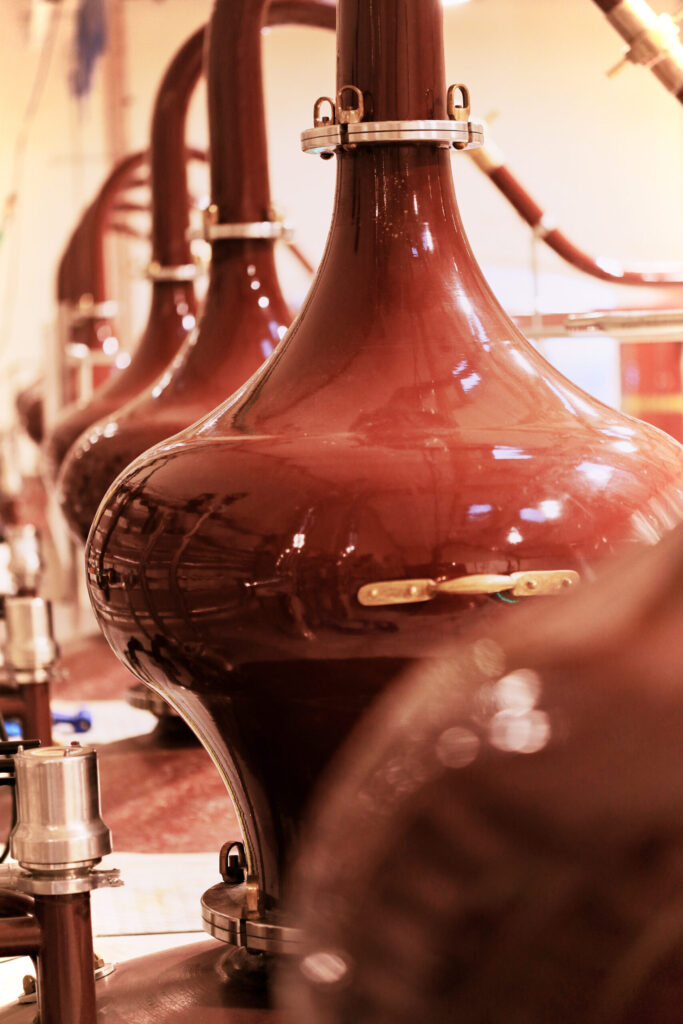
Biogas distillation in Cognac and Angers
Since 2021, all the gas consumed by the production sites in Cognac (Maison Rémy Martin) and Angers (Maisons Cointreau and St-Rémy) has come from biogas. This source of energy is of exclusively agricultural origin and mainly comes from local sites in the Pays de la Loire and Nouvelle Aquitaine regions.
This green gas has made it possible to reduce carbon emissions linked to the distillation of eaux-de-vie by 80%.
RÉMY COINTREAU AND RENEWABLE ENERGIES:
With 38% of renewable energy used at all the Group’s sites in 2023/24 , Rémy Cointreau is making progress towards its target of 100% by 2030.
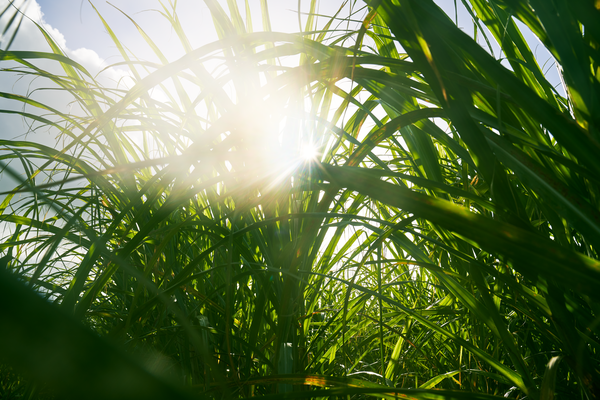
A solar future for Mount Gay
Mount Gay aims to use 100% renewable energy at its production site by 2028, in particular through solar power. The Distillery has already installed solar panels on its Barbados site, enabling it to achieve 22% green electricity on site. New solar panels will be installed in the coming years with a production target of 500 MWh by 2025, i.e. nearly a third of Mount Gay’s total electricity consumption.
As well as reducing the distillery’s carbon footprint, this initiative also contributes to Barbados’ national goal of achieving 100% renewable energy by 2030.
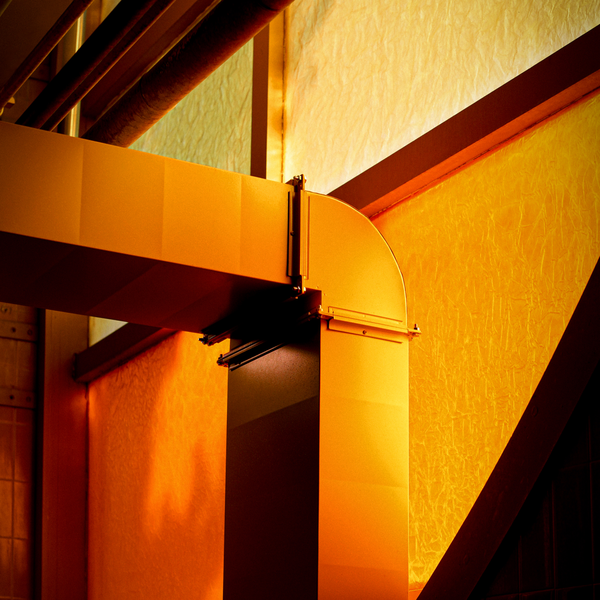
TK BLUE - the tool for measuring transport-related carbon emissions
Rémy Cointreau processes all the data from its transport partners in the TK Blue reporting tool.
The aim? To measure the carbon footprint of all its goods flows as accurately as possible.
The reporting platform transforms the kilometres travelled and their loads into quantities of CO2 emissions. In 2021/2022, the Group will have completed the deployment of TK Blue, enabling it to identify and implement more sustainable transport alternatives in a targeted manner.
WHAT ABOUT TOMORROW? ZERO PLANE.
Air freight already represents a tiny proportion of our goods transport (0.03% of the kilometres travelled by our products). However, this is not stopping us from strengthening our commitment to limiting the environmental footprint of our logistics. In 2023/24, we once again reduced the number of journeys by air by 21%. Overall, CO2 emissions linked to transport have fallen by 70% over the last three years.
We are currently measuring our water footprint across our network
• Ensure the reliability of our water consumption measurements by 2025
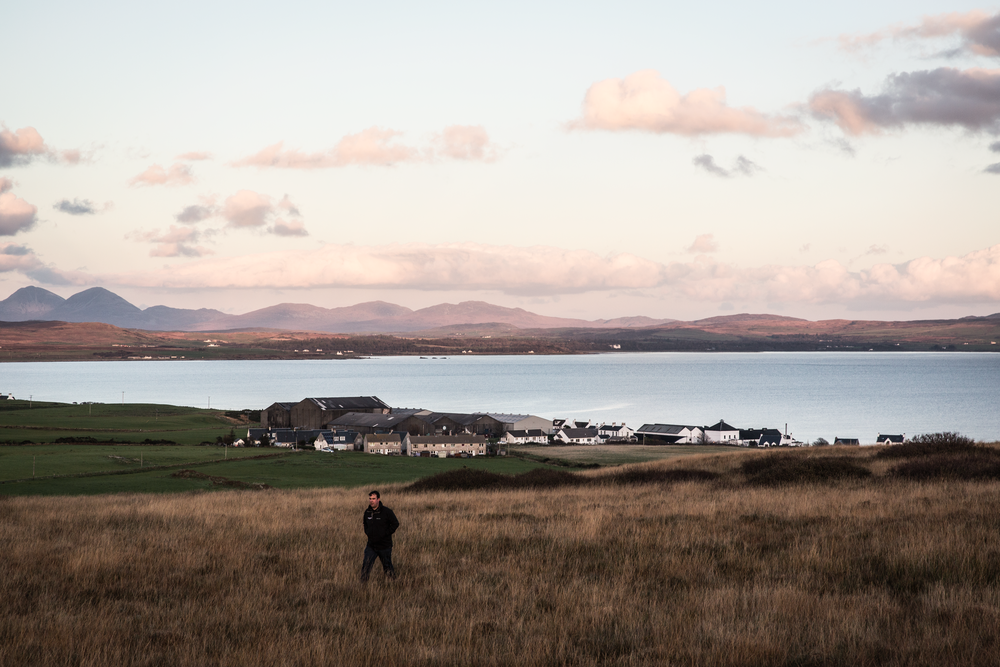
We reuse liquid effluents for greater circularity
• 70% reuse of vinasse through spreading techniques by 2025 (25% in 2023/2024)
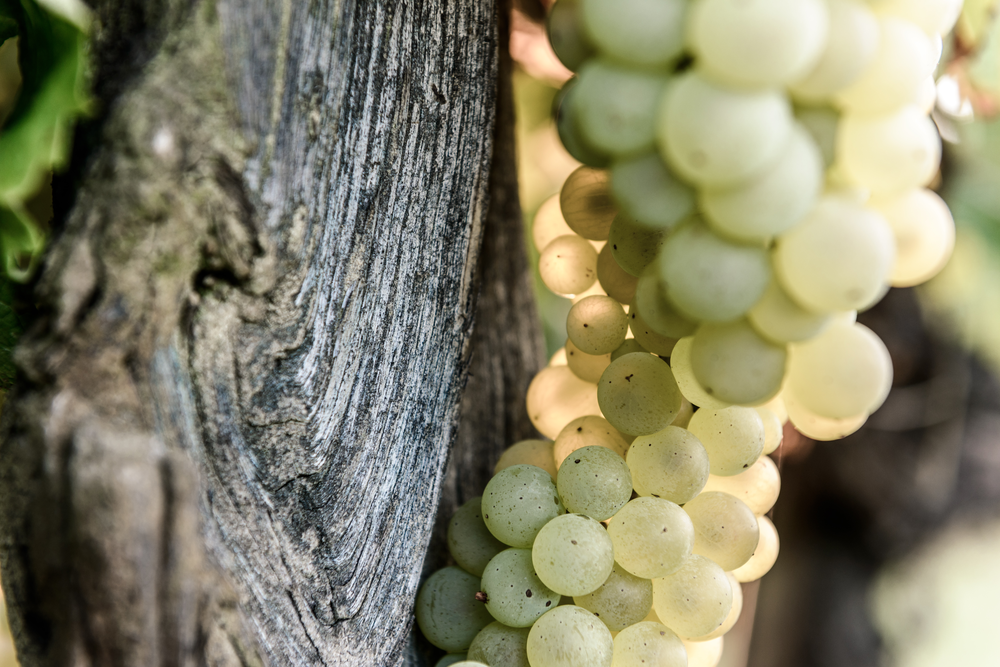
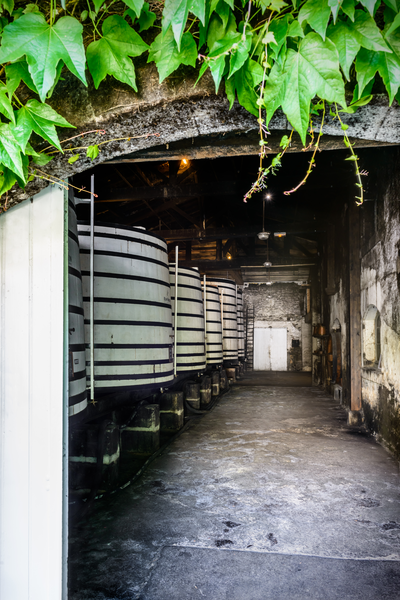
Produce green energy from vinasse
All of Domaines Rémy Martin’s vinasses are entrusted to a local methanisation and green energy production unit, of which Rémy Martin is a director.
For over 50 years, this unit, known as REVICO, has been offering a solution for the recovery of vinasse from the distillation of cognac. Its industrial process extracts organic food compounds (tartaric acid) and generates renewable energy (biogas).
This biogas not only produces heat for the site, but also supplies 3300MW.h/year of green electricity, supplying the town of Cognac in particular.
Together with South Pole, we are joining forces to support our markets in their environmental transition
• Select and support initiatives to protect the territories and communities that are most vulnerable to climate change.
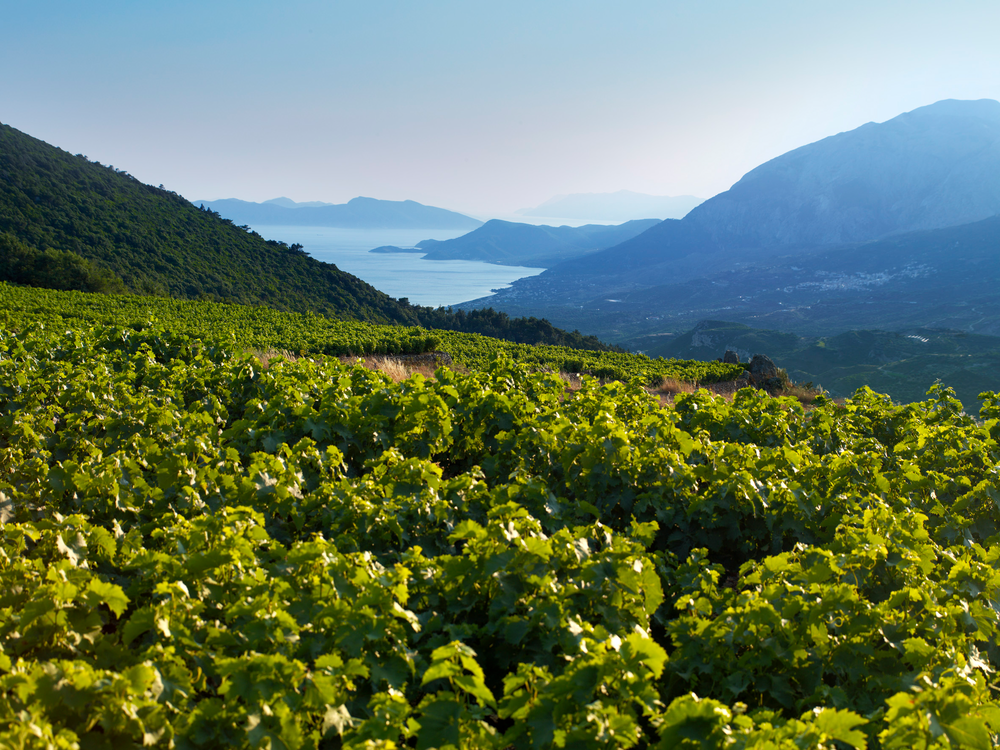
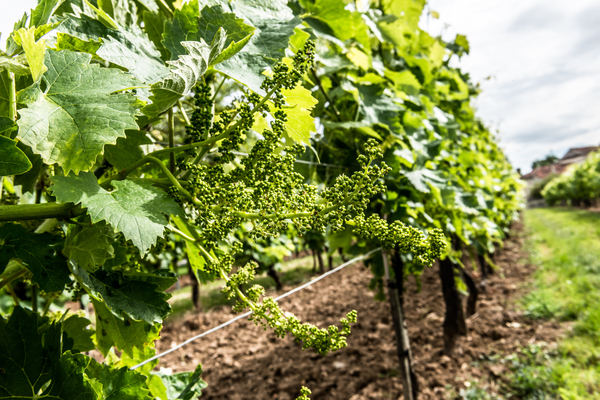
The Rémy Cointreau Group finances solidarity-based climate initiatives in partnership with South Pole
6 solidarity-based climate initiatives that are making a difference
Rémy Cointreau supports 6 climate actions in the United States and China, its two largest markets. These actions make it possible to capture or avoid more than 600,000 tonnes of carbon, which represents approximately 4 years of carbon emissions for the Group. These projects also support initiatives to protect the regions and communities most vulnerable to climate change.
These 6 initiatives offer the following co-benefits:
– +75,000 ha of natural ecosystems protected or replanted
– 25 animal species protected, including deer, black bear and elk, etc.
– 3,000 jobs created and thousands of people benefiting from a sustainable income
– +1,000 people with access to green energy
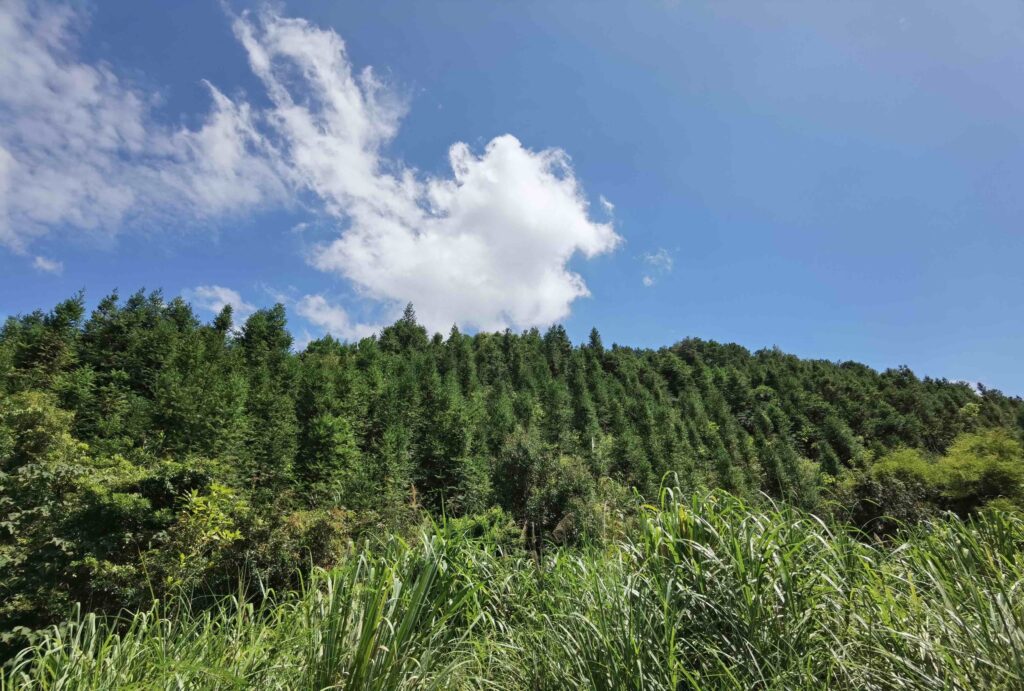
China: reforesting the Karst region
As part of its climate strategy, and in order to contribute to the environmental transition of its major markets, our Group has helped to replant and preserve 33,000 hectares of indigenous species in the heart of the karst region of southern China, a UNESCO World Heritage Site.
This vast reforestation project in an area undergoing rocky desertification represented an environmental and human challenge, creating employment and training opportunities for the 30,000 inhabitants of the local community, many of whom are minorities.
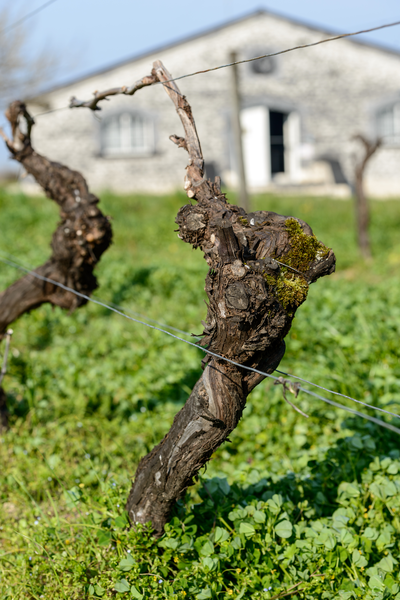
USA: energy transition with the University of Urbana- Champaign
As part of its climate strategy, and in order to contribute to the environmental transition of its major markets, our Group is involved in the energy efficiency programme of the University of Urbana-Champaign, located in the state of Illinois in the United States. Working alongside students and professors, this initiative earned the university the Second Nature Climate Leadership Award for 2020.
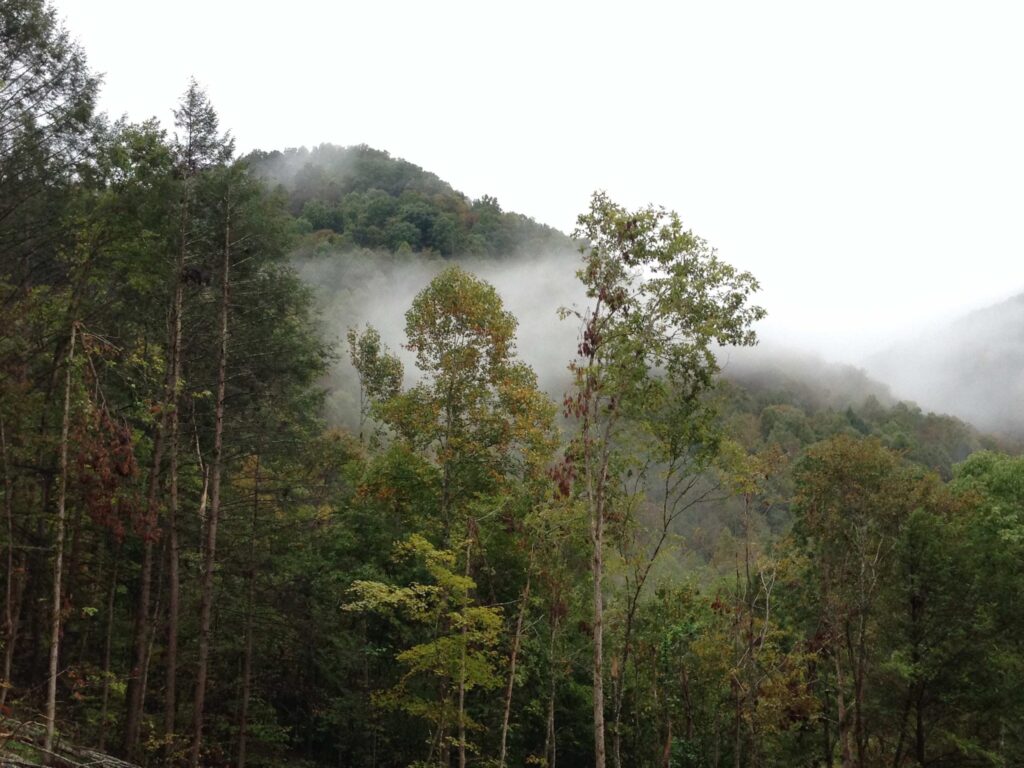
USA: sustainable forest management with Boone Conservation
As part of its climate strategy, and in order to contribute to the environmental transition of its major markets, our Group is participating, with the Boone Conservation, in a major forestry project in the Appalachians, in south-eastern Kentucky. The aim of this collaboration is to ensure sustainable management of the rich local forests, reducing greenhouse gases and improving freshwater run-off from this steep region.
En faisant cela, le Groupe contribue à la protection de la biodiversité locale, notamment une population d’élans récemment réintégrée dans cette zone.
LES APPALACHES, UNE BIODIVERSITÉ UNIQUE À PROTÉGER :
Ce territoire d’action chevauche deux zones bioclimatiques, celles du domaine de l’érablière à tilleul et de l’érablière à bouleau jaune. Le corridor appalachien – qui s’étend sur plus de 2400 kilomètres – abrite plusieurs écosystèmes forestiers exceptionnels : des forêts rares, des forêts anciennes (qui n’ont jamais subi d’interventions de la main de l’homme) et des forêts refuges (qui abritent des espèces menacées ou vulnérables).
